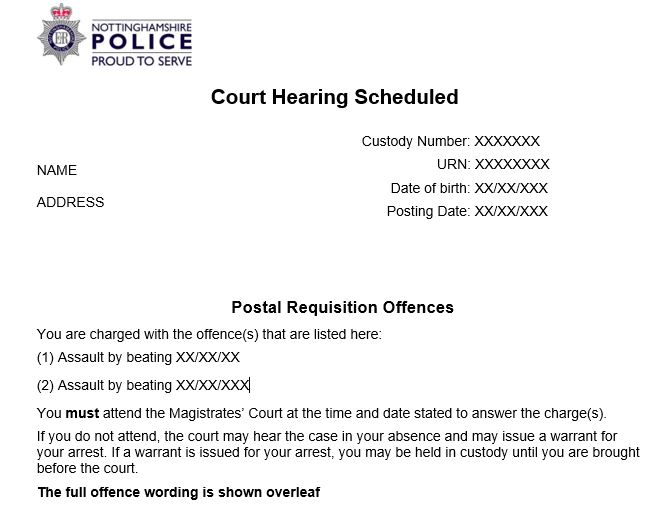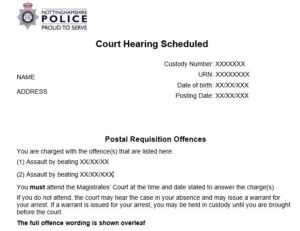Nottingham based solicitor advocate Graham Heathcote was recently instructed by a client to appeal the imposition of a football banning order imposed at Nottingham Magistrates’ Court.
The History of the case

Our client appeared before the Nottingham Youth Court for assaulting a police office in the execution of his duty and assault occasioning actual bodily harm.
This followed an incident at the bar close to Notts County’s Meadow Lane ground. This was prior to the County v Coventry League 2 match.
The bar had chosen not to exclude Coventry City supporters on that day. An hour before the match the police were called to eject some Coventry fans who were being unruly and disruptive. Door staff had been unable to cope with the hostile group in the bar, and a smoke bomb had been let off inside.
Police also entered the terrace area of the bar to eject a male who had been aggressive towards the officers themselves. He complied with a request to leave but our client had client pushed the officer and attempted to strike him.
During the struggle to arrest our client, the officer felt pain in his right finger. It was subsequently found to be broken.
Our client had entered a guilty plea in the Youth Court and as it was his first conviction received a referral order. Unfortunately the court also imposed a football banning order preventing him from attending football matches within the UK.
It did not appear, however, that this was a football related offence and as a result our client decided to appeal the decision to impose the football banning order to Nottingham Crown Court.
Advice and representation at appeal
In order to impose a football banning order it must be shown that the criminal offence was “football related.” The argument in this case was that the incident was unconnected to football. Instead it was an incident that arose upon the police attempting to remove people from a bar.
Upon a close examination of the evidence it was clear that this argument had merit. As a result, Graham Heathcote represented our client at appeal, instructed by litigator Freddie Sail.
The appeal was opposed by the prosecution. The prosecutor maintained, as they had in the Youth Court, that the criteria for a football banning order had been met. As a result it had been properly imposed.
Football banning order removed
Having considered the evidence and Graham’s representations the Crown Court judge and Magistrates agreed. The appeal was successful and the football banning order was removed.
Our client was obviously delighted and could continue to attend football matches unobstructed.
Contact one of our football law specialists
If you are arrested or know that the police wish to speak to you about a football related offence then make sure you insist on your right to free and independent legal advice.
The advantages of such early advice legal advice can be found here.
If you have already been interviewed or face court proceedings we can still make a real difference to the outcome of your case.
Legal aid may well be available to fund your defence at court.
We have offices across the East Midlands and will happily travel across the country to provide representation for all football related offences.

Alternatively you can contact us using the form below.






